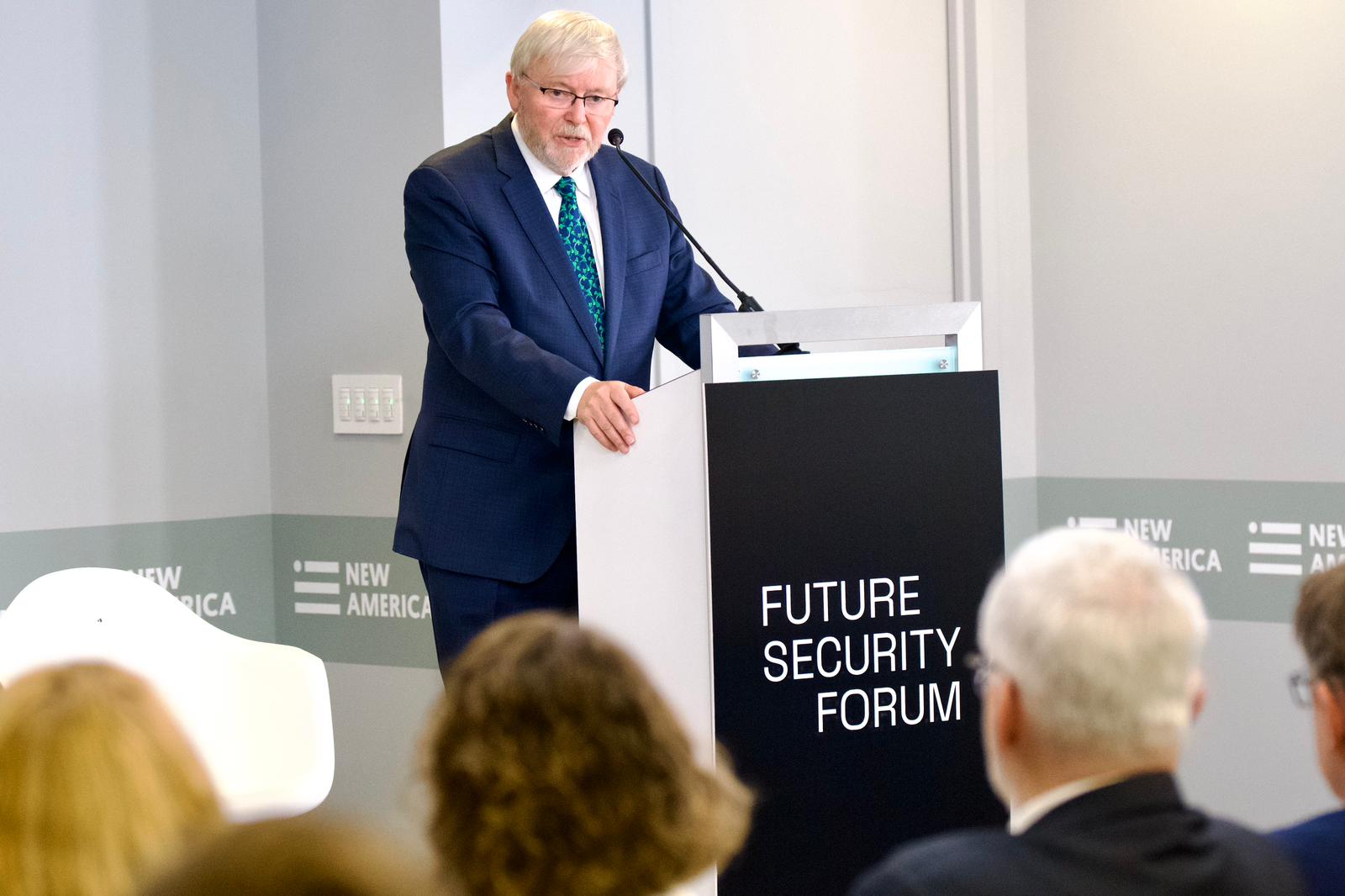
The Future Security Forum in Washington DC provided a platform for global leaders, policymakers and academics to discuss emerging security challenges.
Security & Defence PLuS partner universities UNSW Sydney, King’s College London and Arizona State University (ASU) joined security experts in Washington DC in September to host the Future Security Forum.
The two-day event, held at the Washington-based think tank New America, saw policymakers, government and military leaders, experts and analysts explore global security issues. Areas of discussion included US foreign policy, relations with China, the war in Ukraine, AUKUS and Indo-Pacific security.
Attendees heard how Security & Defence PLuS will harness the expertise of UNSW, King’s and ASU and the higher education sector to address global security challenges. The event also considered critical topics including political violence, climate change, the future of Afghanistan, hostage recovery and pandemic preparedness.
An evolving global security landscape
The first day of the Future Security Forum, led by New America and ASU’s Future Security Initiative, considered how global security has changed over the past decade and will change over the coming decade.
Former National Security Advisor Lt Gen. H.R. McMaster (U.S. Army, Ret.) joined Vice President of New America and CNN reporter Peter Bergen for a conversation on the past and future of US foreign policy, drawing on McMaster's experiences in the Trump White House.
“We [the United States] are already behind; it’s much cheaper to prevent war than to have to fight one. We have a lot of work to do to strengthen our defence,” said Lt Gen. McMaster.
Best-selling author Dmitri Alperovitch spoke about US-China relations, which he described as a “cold war”.
“We have a global competition for supremacy with China playing out in every single corner of the world ... in the military sphere, diplomatic sphere, technology, geopolitics, economics … We should not shy away from the cold war label,” he said.
Admiral Christopher W. Grady, Vice Chairman of the Joint Chiefs of Staff in the US military, shared valuable insights on preparing for future security challenges.
“Challenges to sovereignty around the world – mostly notable in Ukraine – have shown us that war is real, and we have to be prepared for that.”
The conflict in Ukraine was a common thread in many sessions across the two days. In his keynote speech, Sir Lawrence Freedman, Emeritus Professor of War Studies at King’s College London, focused on Russia’s invasion of Ukraine and the technological advancements and innovation which have been witnessed during the conflict.
A regional focus on Indo-Pacific security
Day two of the Forum had a regional focus, with leaders, academics and military personnel discussing Indo-Pacific security and stability. Conversations focused on the trilateral AUKUS agreement signed in 2021.
Former Australian Defence Force Brigadier Dr Ian Langford outlined how Security & Defence PLuS is capitalising on the expertise of UNSW, King’s and ASU and the higher education sectors of all three countries to tackle global security issues.
A panel discussion focused on the political resilience of AUKUS with perspectives from the three signatory nations. Attendees also heard about intelligence sharing from former senior British Diplomat Sir Simon Gass and retired Vice Admiral Ann Rondeau, President of Naval Postgraduate School.
During a panel on alliances and diplomacy, John Blaxland, Professor of International Security and Intelligence Studies at ANU, gave insights from Australia with John Bew, current Defence Security Advisor to the UK Prime Minister, and Yuki Tatsumi, Japan Program Director at the Stimson Center, focusing on the UK and Japan, respectively.
Australian Ambassador to the US and former Australian Prime Minister Kevin Rudd delivered the keynote speech on the second day.
Ambassador Rudd said that AUKUS and other regional geopolitical agreements have presented “a much more complex picture” for Beijing to assess.
“Australia’s long-term national security interests are driven by a clear concept of deterrence – deterrence in terms of how we best avoid war, how we best preserve the peace, and beyond that, recognising fully how difficult and dangerous the current international strategic landscape is,” he said.
The forum concluded with a panel on AUKUS industry challenges and opportunities and a discussion on regional approaches to Indo-Pacific security featuring the Philippines Ambassador to the US and a senior military representative from the Japanese embassy.
Subscribe to hear about upcoming Security & Defence PLuS events, educational offerings and opportunities.
- Log in to post comments
